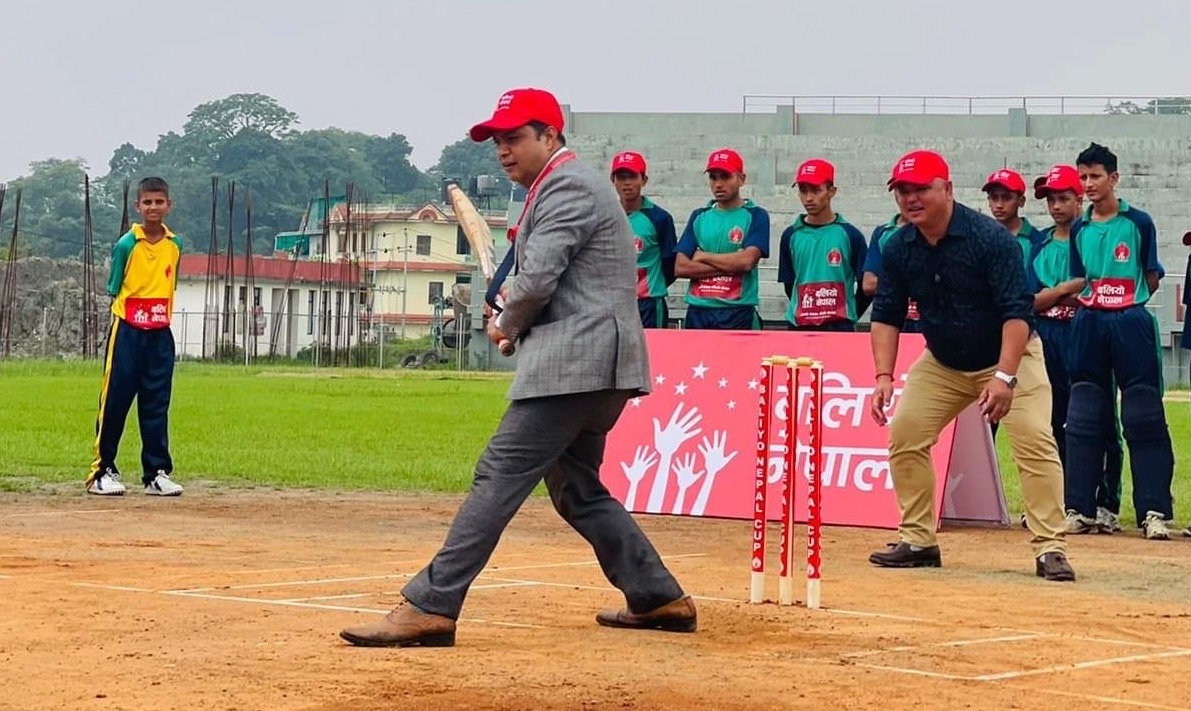 - Dr. Atul Upadhyaya, CEO
- Dr. Atul Upadhyaya, CEO
We can read everywhere that a healthy, nutritious diet, especially for children is vital to their physical as well as cognitive development. Malnutrition has groped Nepal for decades. Although, considerable achievement has been made in reducing the stunting prevalence from 68 to 36 percent through large-scale improvement in the health system, resolving other challenges such as bringing down the inequality and donors’ dependence will enable Nepal to continue building on the progress it has made over the last two decades, and attain the SDG targets. Moreover, the nation’s Long-Term Vision 2043 to make “Prosperous Nepal, Happy Nepali” needs immense effort in multidimensional sectors, including improved nutrition.
Appropriate nutrition of a child begins with early and exclusive breastfeeding for 6 months, followed by optimal complementary feeding along with continued breastfeeding for 2 years and beyond. This will provide adequate macro- and micro-nutrients required for the growth and development of children. However, the existing multiple and conflicting drivers of food choices are pushing out nutritious foods with unhealthy snacks, even influencing caregiver behavior.
Studies have found that most commercially produced snacks have inadequate micronutrients required for the growth and development of children. Unhealthy snacking by children of 12-23 months of age has contributed to poor nutritional adequacy revealing the malnutrition burden even in the urban and semi-urban population. Moreover, mothers and caregivers, although aware of the unhealthiness of most processed foods, still feed their children with these unhealthy foods primarily due to the convenience, child preference, availability, and affordability. That is why Baliyo Nepal Nutrition Initiative (BNNI) created the ‘Baliyo Movement’, a nutrition campaign adopting a holistic approach to address malnutrition. The Baliyo Nepal Movement was launched in November 2019 by the Rt. Honorable President of Nepal. The major drivers of this campaign include i) partnership with the private sector for production, distribution and market supply of healthier foods at affordable prices, ii) massive awareness through partnering with the wider private sector, communities, civil society, and the influencers to create market demand of these healthier foods and iii) policy advocacy and partnership with the government to adopt success measures into national-level policies, regulatory mechanism and communication strategies.
Following the launch, BNNI was able to share its first program of creating demand and supply for fortified Lito and Eggs undertaking the partnership and aspiration-driven marketing model. The program's primary goal is to help reduce chronic malnutrition (stunting) among children aged 6-23 months. We aim to instigate behavior transformation in the community –making every child dream of reaching their fullest potential – using various aspirational and inspirational measures. Our interventions expand from schools to the communities and the private shopkeepers, who jointly rally around the Baliyo Nepal campaign in alleviating the malnutrition problem in the country. This will make every child in Nepal as mighty or Baliyo as The Everest – thus, the Baliyo Nepal!
The global nutrition movement along with several government plans and policies have realized the importance of involving the private sector to address the issues of malnutrition. Thus, it is understood that the private sector can play a significant role in this movement and buying them in for this noble cause is extremely important. Moreover, the increasing consumption of processed foods has certainly stressed the roles and importance of private sectors in the Food-Based nutrition intervention movement. It is also very crucial, particularly in LMIC contexts, to capacitate the private sectors to manufacture and sell healthy yet affordable foods.
However, on one hand, the role of the private sector is very critical, on the other, engaging with the private sector is very delicate and sensitive. The divergent and competing interests of private sectors, particularly on profit earning, may arise in conflict-of-interest situations. To mitigate these situations, it is necessary to conduct dialogue, debate, and negotiation with the private sector. Furthermore, a mechanism should be built to prevent, identify, manage, and monitor the potential risks of these situations. Thus, to build their capacity and avoid conflict of interest situations, it is necessary to drive the private sector rather than simply, identifying and/ or acknowledging them for the initiative such as Baliyo Nepal Nutrition Movement.
In this period of one year, the whole world is pushed back due to COVID. Although we were not able to carry out our plans, we added a ‘Covid Emergency Food Assistance Program’ in selected municipalities of Lumbini Province, which marked the beginning of our nutrition movement in terms of action. Moving forward, we have plans to address the issues of malnutrition among women, especially adolescent girls and women of reproductive age. We are hopeful that the distinctive model introduced and adopted by BNNI can also be continued in our other programs.
Baliyo Nepal Nutrition Initiative is new: we have just begun the movement, and I am glad to associate with a venture like this. Working in the nutrition sector for more than 15 years, I have realized that substantive steps are paramount if we are to free Nepal from the grip of malnutrition. Joining BNNI is both, an opportunity, and a challenge for me personally, as a CEO as well as for us, the entire family who are together – including our partners and the communities we work in.
I would like to thank the board for their continuous motivation and suggestions to improve the program. I would also like to thank everyone on my team for sharing the organization’s vision, believing in the movement, and putting in a year-long effort to lay the groundwork for the movement. I also thank the team for putting together everything to make "Aba ko Nepal, Baliyo Nepal".





